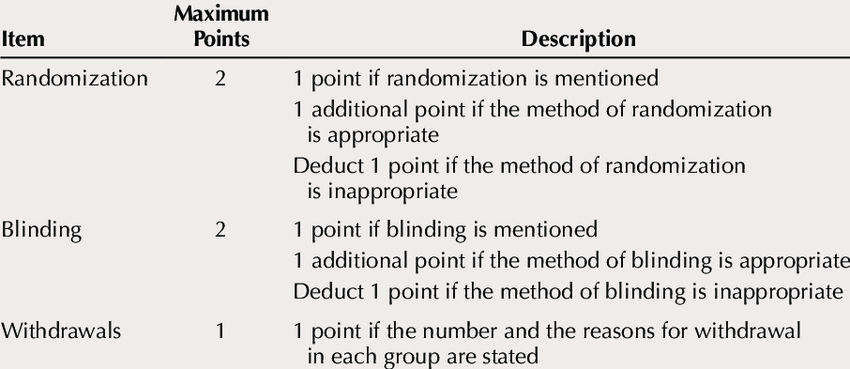Jadad scale
The Jadad scale, sometimes known as Jadad scoring or the Oxford quality scoring system, is a procedure to independently assess the methodological quality of a clinical trial. It is named after Colombian physician Alex Jadad who in 1996 described a system for allocating the trial a score of between zero (very poor) and five (rigorous). It is the most widely used such assessment in the world, and as of 2017, its seminal paper has been cited in over 13000 scientific works.
High JADAD score, reflecting better methodological quality 1), was associated with lower chance of demonstrating a benefit from surgery. The JADAD scale places much emphasis on blinding and the inter-rater agreement for the JADAD scale has been questioned 2). Still, almost half of the neurosurgical studies in a review had a JADAD score of 1 or 2, indicating rather poor quality 3).
